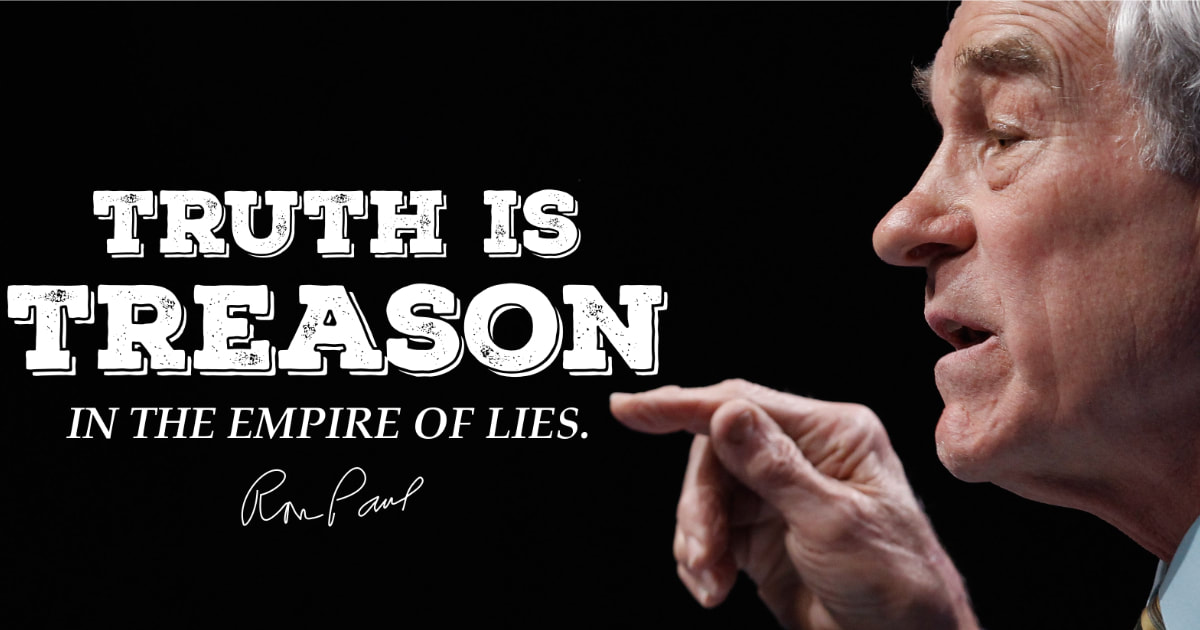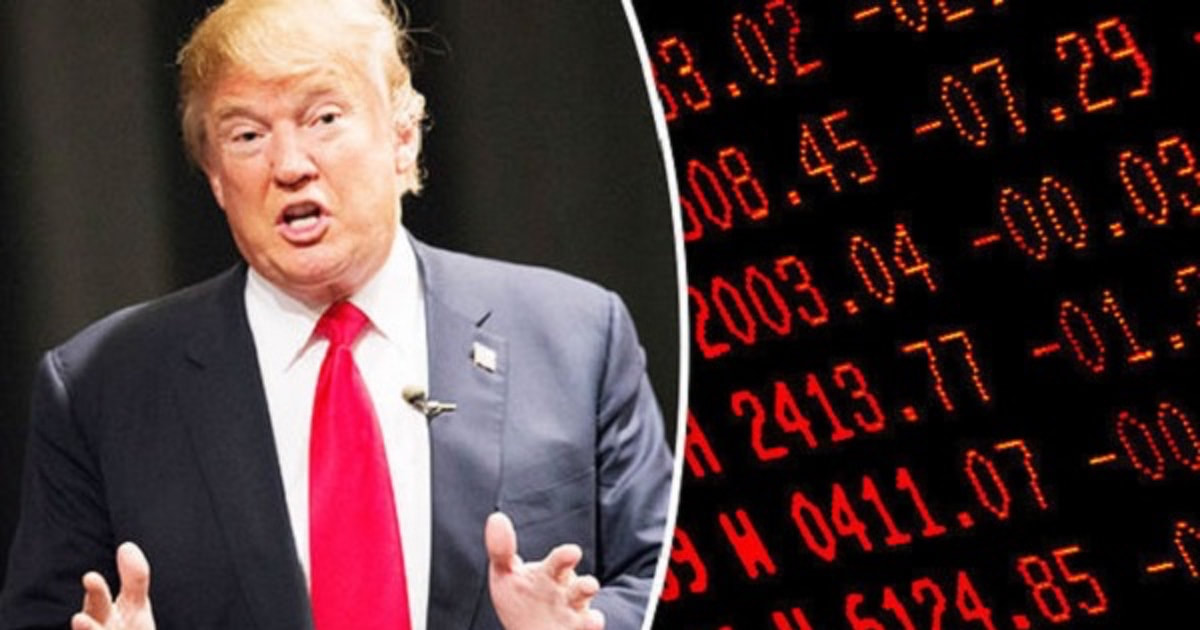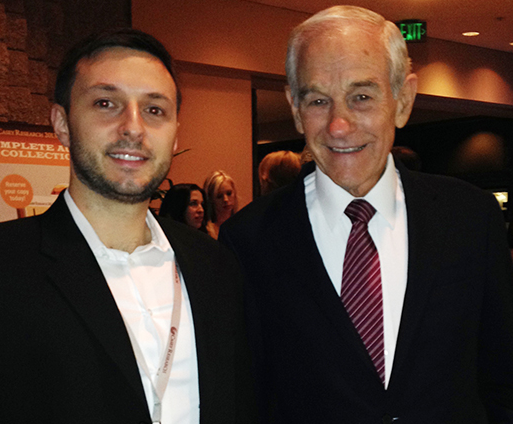|
According to a new study by Brown University's Watson Institute, the real cost of the US wars since 9/11 is three times the Pentagon's estimate. Some $5.6 trillion have been spent on the endless global war. The total costs of 16 years of war are even higher, and they extend beyond just finance.
By Jacob G. Hornberger
One of the burning issues of our time is the role of the U.S. government in foreign affairs: Should the United States embrace interventionism or non-interventionism? Should the U.S. government be destroying democratically elected regimes? Should it be installing into power right-wing dictatorships? Should it be partnering with and supporting brutal dictatorships? Should it be using U.S. taxpayer money to fund foreign regimes? Should it be invading and waging wars of aggression against independent countries? Should it be intervening in foreign civil wars or revolutions? Should it be kidnapping, torturing, and assassinating people in other countries, including foreign leaders? Should it be maintaining military bases in foreign countries? Should it be spying on foreign regimes? Should it be imposing sanctions and embargoes on foreigners? The United States was founded on the principles of non-interventionism. America’s Founding Fathers believed that America should stand as an independent nation, entering into alliances with no one and intervening nowhere. John Quincy Adams summed up America’s founding foreign policy in his Fourth of July speech to Congress in 1821: America does not go abroad in search of monsters to destroy.
A non-interventionist foreign policy obviously does not require a massive military establishment, a CIA, or a NSA. Thus, Americans lived without that type of governmental structure for more than a century. They instead lived under a limited-government republic.
Those of us living today live under an opposite system, an interventionist system, which necessarily entails a massive military establishment, a CIA, a NSA, and the ever-growing tax burden needed to sustain them and their foreign interventions and domestic spying programs. Interventionism has been the official foreign policy of the United States for the past 100 years or so. So, the first half of U.S. history was non-interventionism. The second half has been interventionism. What does the future of freedom hold today? That’s where sound ideas on liberty and limited government come into play. There is no way to measure the power of such ideas. One must simply believe in their power and continue to expound the truth, even if it appears that no progress is being made on the surface. Keep in mind: There is a reason that totalitarian regimes do their best to shut down the dissemination of ideas on liberty. They know their potential power to bring a shift in people’s thinking, which then has the potential for bringing about a shift in society, even if it is contrary to what government officials want. Are libertarians making progress in restoring a non-interventionist foreign policy to our land? We certainly don’t see any progress in the political world. The U.S. national-security establishment’s forever wars show no signs of abating and actually appear to be expanding. There certainly is no movement to close or abandon U.S. military bases abroad. Partnerships with dictatorial regimes continue. The same with sanctions and embargoes. Assassination has become official U.S. policy. Spending on the Pentagon, the CIA, and the NSA and their armies of contractors and subcontractors continues to soar? And yet … An article posted today on Antiwar.com shows where the progress is being made. The article, written by Grant Smith, director of the Institute for Research: Middle Eastern Policy in Washington, D.C., cites a recent poll where people were asked the following question: “Which expenditure category should Congress cut to make government more responsive to the American people and reduce their budget deficit?”
The category “US military actions in the Middle East” received 42.0%.
Take a look at one of the best articles on foreign policy that I have seen in the mainstream press. It was published by the Los Angeles Times and is entitled “For U.S. Foreign Policy, It’s Time to Look Again at the Founding Fathers’ Great Rule” by Elizabeth Cobbs, the Melbern Glasscock chair of American history at Texas A&M and a research fellow at the Hoover Institution. I highly recommend reading this article. If you like it, share it with friends. Remember: Ideas have consequences. They don’t cause everyone to reevaluate his thinking. But they oftentimes do cause some people to reevaluate their thinking. Cobb cites a Pew poll in 2013 that said that 52 percent of the American people said that the United States should “mind its own business.” Today, Pew found that that number has risen to 57 percent. We might be closer than we could ever imagine to one of those gigantic societal shifts toward freedom and limited government. The fact that so many Americans are now embracing the restoration of America’s founding principle of non-interventionism should excite every person who yearns for a free, prosperous, peaceful, and harmonious society.
This article was originally published at The Future of Freedom Foundation.
By Liberty Report Staff
By Nick Giambruno
Ron Paul told me this would happen… Dr. Paul first laid out his theory in 2006, in a little-known speech, during an otherwise dull session of Congress. I think it’s his most important speech ever. During the speech, Paul traced the history of the US dollar within the international financial system. Crucially, he pointed out the one thing that would precipitate the US dollar’s collapse. Now that one thing is about to happen. Here’s the most important part (emphasis mine): The economic law that honest exchange demands only things of real value as currency cannot be repealed. The chaos that one day will ensue from our 35-year experiment with worldwide fiat money will require a return to money of real value. We will know that day is approaching when oil-producing countries demand gold, or its equivalent, for their oil rather than dollars or euros. The sooner the better.
In other words, we’ll know the dollar-centric monetary system is about to end when countries start trading oil for gold or its equivalent… not dollars.
Now—thanks to China—that’s about to happen in a very big way. I discussed all of this with Ron Paul extensively at a past Casey Research conference. He told me he stands by his assessment.
China recently announced a mechanism that will make it possible to trade oil for gold on a large scale for the first time in many decades.
This mechanism could undermine the petrodollar system—the system that’s supported the US dollar as the top global currency since the 1970s. I call it China’s “Golden Alternative” to the petrodollar. Why the US Dollar Is So Special The petrodollar system is the big reason the US dollar is so unique. Here’s how it works… Oil is by far the largest and most strategic commodity market in the world. And, until recently, virtually anyone who wanted to import oil needed US dollars to pay for it. Every country needs oil. And if foreign countries need US dollars to buy oil, they have a very compelling reason to hold large dollar reserves. This creates a huge artificial market for US dollars. It also gives a tremendous boost to anyone who lives in the US or holds US dollars. The petrodollar system is the reason foreign countries keep such large US dollar reserves. Now China is set to hit the petrodollar with a mortal blow...
China’s Golden Alternative to the Petrodollar
Throughout history, every great power has had money that’s recognized around the world. Usually, these currencies have been tied to gold and silver. Ancient Greece had the silver drachma. Rome had the silver denarius. The Islamic Caliphates had the gold dinar and the silver dirham. Venice had the gold ducat. Great Britain had the gold sovereign. The United States used silver in its coins until 1964. And the dollar was under a pseudo-gold standard until 1971. Now it’s China’s turn. It’s no secret that China has been stashing away as much gold as it can. Today, China is the world’s largest producer and buyer of gold. According to informed observers, China now has official reserves of over 160 million ounces. It also has 400 million ounces in the ground that it could potentially mine. (The US, by contrast, claims it has official reserves of around 260 million ounces.) China’s Golden Alternative is the reason it’s been stashing so much gold. The Golden Alternative will allow anyone in the world to trade oil for gold. It will totally bypass the US dollar and the US financial system. For many, it will be much more attractive than the petrodollar system.
The Golden Alternative is the beginning of the end of the international monetary system that has reigned since the early 1970s.
Here’s how it will work… The Shanghai International Energy Exchange (INE) is about to launch a crude oil futures contract denominated in Chinese yuan. It will allow oil producers to sell their oil for yuan. Of course, most oil producers don’t want a large reserve of yuan. China knows this. That’s why China has explicitly linked the crude futures contract with the ability to convert yuan into physical gold through gold exchanges in Shanghai (the world’s largest physical gold market) and Hong Kong. The system won’t touch China’s official gold reserves. Oil producers will have two ways to do this:
Bottom line, it will allow oil producers to sell oil for gold. Producers will be able to completely bypass the petrodollar system and any restrictions/regulations/sanctions of the US financial system. I recently spoke with the officials at the exchange. They told me they plan to go live with the INE crude contract before the end of the year.
China Wants Pricing Power
One of China’s key goals here is to reduce the dollar’s influence over oil pricing. China is the world’s largest oil importer. Developing the new crude contract gives it some global pricing power. Currently, most of the $1.7 trillion worth of oil traded each year is priced off of two US dollar-denominated crude benchmarks: West Texas Intermediate (WTI) and Brent. Beijing thinks the yuan crude contract will reflect the market conditions in Asia better. It could become the most important oil benchmark in Asia. The vice-chairman of the China Securities Regulatory Commission recently said: The country will make crude oil futures the new starting point of opening up all futures markets… And then, we will allow foreign players, whose enthusiasm is very high at present, to enter other futures markets, such as iron ore and PTA, when conditions are ripe. In other words, oil is just the beginning. Eventually, China plans to challenge the dollar’s dominance over all commodities. Read the rest of this article at International Man
Over the weekend the very mainstream BBC published a blockbuster investigative report showing that the US was part of negotiations that allowed thousands of ISIS fighters and their families -- and tons of weapons -- to escape Raqqa in Syria. At the same time Secretary of State James Mattis said the US cannot leave Syria until ISIS is defeated. What's going on here?
Are the foreign policy "Realists" the answer to our rampant foreign interventionism? The Koch Institute thinks so and according to a recent Washington Post report is spending several million dollars to promote "restraint" and "selective engagement." But isn't "Realism" just another form of interventionism? Who gets to pick and choose when to intervene and on whose behalf? Realism and its problems on today's Liberty Report...
By Ron Paul
Shutting down the Department of Education and returning control of the education dollar to the American people is the key to improving education. The best way to put the people in charge of education is by shutting down all unconstitutional bureaucracies, repealing the Sixteenth Amendment, and ending the Federal Reserve’s money monopoly. Since Congress is unlikely to restore constitutional, limited government in the near future, supporters of quality education must advance policies aimed at giving Americans control over the education dollar so they can seek alternatives to the federally-controlled system. This is why I have always supported education tax credits and deductions. When I was in Congress, I introduced legislation providing tax credits for contributions to education scholarship funds. These funds provide K-12 scholarships to low-income-family students whose parents cannot afford private schools. These scholarship funds allow these children to escape government schools that have been ruined by federal “reforms” like No Child Left Behind and Common Core, as well as mandates such as the ones dictating what can be served in school cafeterias.
Including education scholarship tax credits in the tax reform bill currently before Congress would be a major step toward creating a free market in education. In a free market, parents could select the type of education that best suits the unique needs of their children, instead of the demands of politicians and bureaucrats. Schools could compete on the basis of academics, extracurricular activities, and even lunch menus. Those with unique and innovative education ideas would be free to establish schools and prove their models’ superiority.
Moving to a free-market education system would increase the amount of money spent on educating children. This is because in a free market resources would not be siphoned away from the classroom to support a bloated federal bureaucracy and schools would not be force to waste valuable resources proving they are complying with federal regulations. By increasing competition, education scholarship tax credits encourage government-run schools to improve. The threat of losing more students may even cause local school boards and state boards of education to resist federal mandates. Thus, education scholarship tax credits can improve the education of all children. Some libertarians oppose education scholarship tax credits on the grounds that they are a form of government “subsidy.” Since education tax credits allow people to use their own money to support education, this claim only makes sense if one believes that all income is owned by the government, so any income not taxed away is a gift from government. This is a strange position for a libertarian to take! Other critics say that tax breaks for education (or any other item) distort the market. They also claim that these tax breaks cause income taxes to be higher than they would be without these credits. These critics may have a point, but the answer is to force Congress to cut spending and reduce or eliminate all taxes, not to take away existing tax breaks. Almost all Americans agree that education should be generously funded. The only question is who should control the education dollar — the federal government or the people. Anyone looking for the answer need only consider how American education has declined as the federal government’s role has increased. Education scholarship tax credits are an important step toward restoring control of education to the American people and providing a quality education to children from low-income families. Congress should help American children and include education scholarship tax credits in the tax reform bill.
The media and pundits are attacking President Trump for not hitting Philippines President Duterte on Human Rights and for other "blunders" on his extensive Asia tour. But are the critics missing the point to score political points?
By Chris Rossini
Republicans and Democrats ... Left and Right ... Alt-Left and Alt-Right ... Liberals and Conservatives ... They must be different, right? They're always bickering and fighting with one another. Surely, these are all opponents. To a certain degree, yes, but the differences are really not that significant. What they're primarily fighting over is who government's guns should be pointed at. Who will be the victim of government violence ... that's it! There are some people on one end of the spectrum that believe the guns should be pointed at people who live in different countries (i.e. the warfare statists). On the other end of the spectrum, there are people that believe government's guns should be pointed inwards (the welfare statists). Then there are people who believe themselves to be clever. They're not 'extremists' on one end of the spectrum or the other. They're equal opportunity violence advocates. These individuals favor government guns being used overseas here, here, and here. But they also favor government guns pointed inwards here, here, and here. It's like they're building a Subway sandwich of violence....hold the liberty...don't even put it on the side. The only real winner in all of this? The government's guns.
That's pretty convenient for the government, don't you think?
Everyone is always begging for you to use aggressive force against someone. The only difference is who you're going to rough up. If you have the personality of roughing up people, government is a dream job for you. That's why history is littered with some of the biggest tyrants to ever walk the Earth. Without exception, they were all government employees. In normal private life, you can't rob, steal, cheat, or kill others. But in the fantasy world of government, not only is it all "legal," but people revere you, sing songs, and salute you! The only thing that everyone will fight over, is who your victims will be. Do you have to rough some people so that someone can have Obamacare? Or do you have to rough someone up so that bankers get a bailout? Or (and this is a really popular one) do you travel around the globe, killing hundreds of thousands, in order to "liberate" them and bring them "freedom" and "democracy". Surely, this orgy or violence is not the only option for humanity. If this was our only choice, humans would not have made it to 2017. The parasites would have overwhelmed the hosts long ago. Well, it turns out there is another way...and it has nothing to do with Left or Right, or any other type of gang warfare. It's called Liberty, and it's rooted in the idea of "non-aggression". The idea is very simple to understand. No person is permitted to use aggressive force against anyone else's person or property. Not so crazy, right? Who could be against that? Well, there's a catch. You also can't get a group of people together, call yourself "government" or anything else, to get around this principle. You can't hire a third party to use aggressive force on your behalf. There are no exemptions. You keep your hands off other people and their property, and they keep their hands off you and yours. Violence is only justified to repel an aggressor. If someone decides to attack you, you're justified to use force against their attack. It's not complicated. Such an idea is far superior to the barbaric theatre that we're exposed to on a daily basis. It was a big mistake granting government the ability to use aggressive force. Give any humans the "legal" exemption to rob, steal and kill and it'll turn the entire world on its head. Take a look around at the results. We're seeing the absolute worst in people. Liberty and non-aggression. That's the escape hatch.
Washington DC is not buzzing with activity so that taxpayers can be permitted to keep more of their earnings. Washington and the surrounding areas are some of the richest places in the entire country. While it may appear that government cuts taxes in one area, they always make sure to raise them in another. A new philosophy on the role of government is desperately needed. Ron Paul discusses on today’s Liberty Report.
|
Archives
July 2024
|






 RSS Feed
RSS Feed



